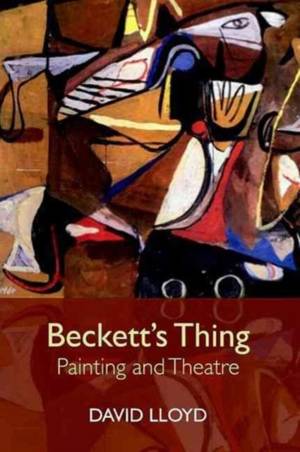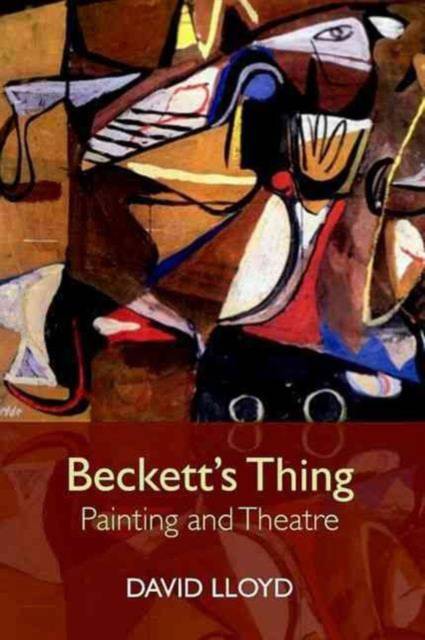
- Retrait gratuit dans votre magasin Club
- 7.000.000 titres dans notre catalogue
- Payer en toute sécurité
- Toujours un magasin près de chez vous
- Retrait gratuit dans votre magasin Club
- 7.000.0000 titres dans notre catalogue
- Payer en toute sécurité
- Toujours un magasin près de chez vous
Description
Explores Samuel Beckett's relation to painting and the visual imagination that informs his theatrical work
Beckett was deeply engaged with the visual arts and individual painters, including Jack B. Yeats, Bram van Velde, and Avigdor Arikha. In this monograph, David Lloyd explores what Beckett saw in their paintings. He explains what visual resources Beckett found in these particular painters rather than in the surrealism of Masson or the abstraction of Kandinsky or Mondrian. The analysis of Beckett's visual imagination is based on his criticism and on close analysis of the paintings he viewed. Lloyd shows how Beckett's fascination with these painters illuminates the 'painterly' qualities of his theatre and the philosophical, political and aesthetic implications of Beckett's highly visual dramatic work.
Key Features
Discusses Beckett's relationship with three painters crucial to his life-long dialogue with the visual artsThe first book to examine the paintings that Beckett would have known and on which he based his critical remarksAccounts for the increasing visuality of Beckett's theatre in relation to his evolving appreciation of painting and the formal questions posed by that mediumExplores Beckett's anticipation of European phenomenology and psychoanalysis in relation to Heidegger and Lacan
Spécifications
Parties prenantes
- Auteur(s) :
- Editeur:
Contenu
- Nombre de pages :
- 272
- Langue:
- Anglais
- Collection :
Caractéristiques
- EAN:
- 9781474415729
- Date de parution :
- 19-10-16
- Format:
- Livre relié
- Format numérique:
- Genaaid
- Dimensions :
- 157 mm x 234 mm
- Poids :
- 612 g

Les avis
Nous publions uniquement les avis qui respectent les conditions requises. Consultez nos conditions pour les avis.






